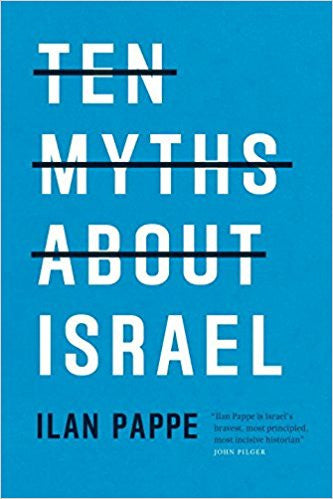Strategy for the Liberation of Palestine – PFLP
The following document was published by the Popular Front of the Liberation of Palestine in February 1969. It was translated at that time by the PFLP Information Department and widely circulated in English and other languages. This is a mandatory read for those interested in having a foundation to understand Palestinian liberation from a class analysis (Marxist-Leninist-Maoist).
The 1936-39 Revolt in Palestine
Ghassan Kanafani – history of the “Arab Revolt” during the mandatory period. The mandatory period is often misunderstood and not focused on as much as the period starting with the Nakba
The Question of Palestine
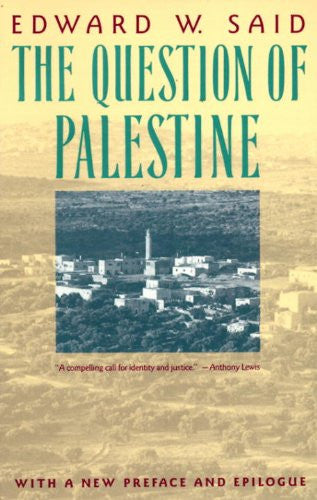
This educational paperback edition of Edward Said’s acclaimed work on the history and struggle of Palestine offers a comprehensive examination of the region, providing an in-depth analytical perspective to those interested in and affected by the matter. With a broad perspective on the social and cultural elements of the region, The Question of Palestine is an authoritative resource on one of the world’s most contested areas. A moving account of the plight of the Palestinian people, and the attitudes of Zionism and the West toward the Palestinian question.
Blaming the Victims: Spurious Scholarship and the Palestinian Question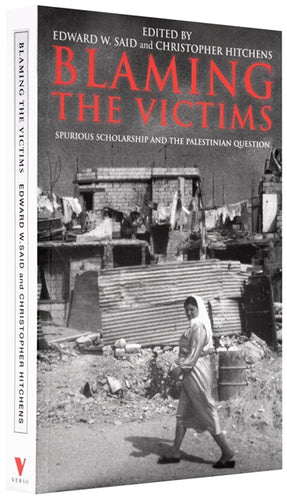
Since the 1948 war which drove them from their heartland, the Palestinian people have consistently been denied the most basic democratic rights. Blaming the Victims shows how the historical fate of the Palestinians has been justified by spurious academic attempts to dismiss their claim to a home within the boundaries of historical Palestine and even to deny their very existence.
Burning the veil
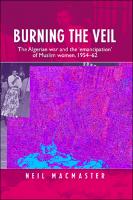
In May 1958, and four years into the Algerian War of Independence, a revolt again appropriated the revolutionary and republican symbolism of the French Revolution by seizing power through a Committee of Public Safety. This book explores why a repressive colonial system that had for over a century maintained the material and intellectual backwardness of Algerian women now turned to an extensive programme of ’emancipation’.
My People Shall Live
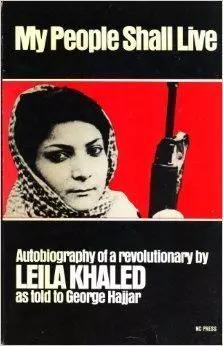
The autobiography of a revolutionary Leila Khaled. “The most obvious moral of this book is that violence always breeds more violence. The Nazis subjected the Jews to violence. The Jews treated the Palestinians with violence. The Palestinians see violence as the only means of recovering their country and their freedom. At the age of twenty, Leila Khaled wrote, “armed struggle is the way of salvation”
The Wretched of the Earth by Frantz Fanon
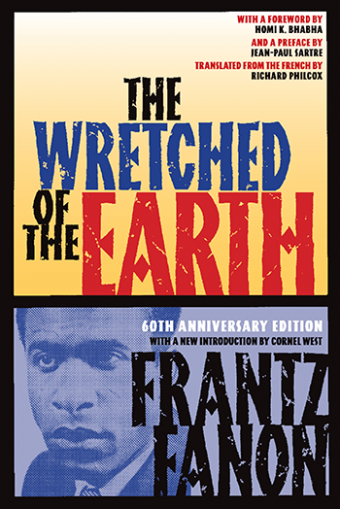
Frantz Fanon’s The Wretched of the Earth is a masterful and timeless interrogation of race, colonialism, psychological trauma, and revolutionary struggle, and a continuing influence on movements from Black Lives Matter to decolonization. A landmark text for revolutionaries and activists, The Wretched of the Earth is an eternal touchstone for civil rights, anti-colonialism, psychiatric studies, and Black consciousness movements around the world.
Toward the African Revolution Frantz Fanon
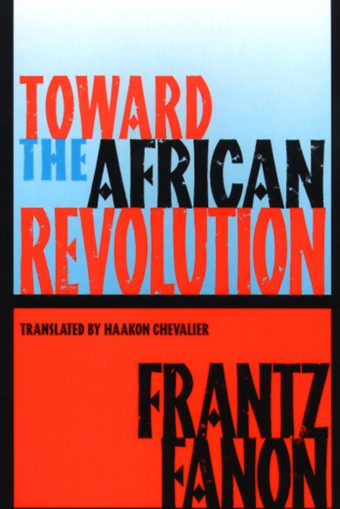
This powerful collection of articles, essays, and letters spans the period between Black Skin, White Masks (1952) and The Wretched of the Earth (1961), Fanon’s landmark manifestos on the psychology of the colonized and the means of empowerment necessary for their liberation.
A Dying Colonialism Frantz Fanon
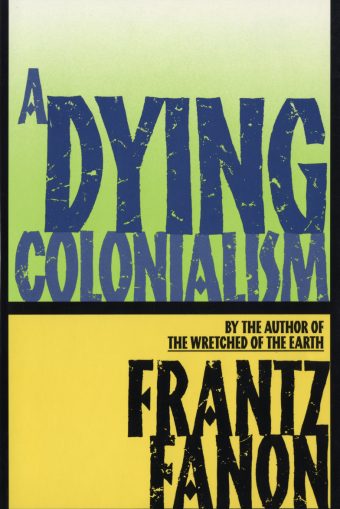
A Dying Colonialism is Fanon’s incisive and illuminating account of how, during the Algerian Revolution, the people of Algeria changed centuries-old cultural patterns and embraced certain ancient cultural practices long derided by their colonialist oppressors as “primitive,” in order to destroy those oppressors. Fanon uses the fifth year of the Algerian Revolution as a point of departure for an explication of the inevitable dynamics of colonial oppression. This is a strong, lucid, and militant book; to read it is to understand why Fanon says that for the colonized, “having a gun is the only chance you still have of giving a meaning to your death.”
The Punishment of Gaza
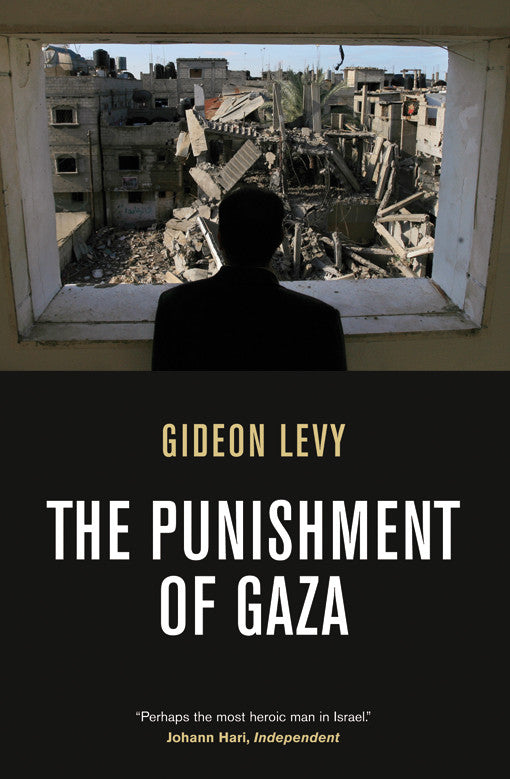
The Punishment of Gaza shows how the ground was prepared for the assault and documents its continuing effects. From 2005—the year of Gaza’s “liberation”—through to 2009, Levy tracks the development of Israel policy, which has abandoned the pretense of diplomacy in favor of raw military power, the ultimate aim of which is to deny Palestinians any chance of forming their own independent state. Punished by Israel and the Quartet of international powers for the democratic election of Hamas, Gaza has been transformed into the world’s largest open-air prison. From Gazan families struggling to cope with the random violence of Israel’s blockade and its “targeted” assassinations, to the machinations of legal experts and the continued connivance of the international community, every aspect of this ongoing tragedy is eloquently recorded and forensically analyzed. Levy’s powerful journalism shows how the brutality at the heart of Israel’s occupation of Palestine has found its most complete expression to date in the collective punishment of Gaza’s residents.
The Ethnic Cleansing of Palestine
The renowned Israeli historian revisits the formative period of the State of Israel. Between 1947 and 1949, over 400 Palestinian villages were deliberately destroyed, civilians were massacred, and around a million men, women, and children were expelled from their homes at gunpoint. Denied for almost six decades, had it happened today it could only have been called “ethnic cleansing”. Decisively debunking the myth that the Palestinian population left of their own accord in the course of this war, Ilan Pappe offers impressive archival evidence to demonstrate that, from its very inception, a central plank in Israel’s founding ideology was the forcible removal of the indigenous population. Indispensable for anyone interested in the Middle East.
Ten Myths About Israel
In this groundbreaking book, published on the fiftieth anniversary of the Occupation, the outspoken and radical Israeli historian Ilan Pappe examines the most contested ideas concerning the origins and identity of the contemporary state of Israel. The “ten myths” that Pappe explores—repeated endlessly in the media, enforced by the military, accepted without question by the world’s governments—reinforce the regional status quo. He explores the claim that Palestine was an empty land at the time of the Balfour Declaration, as well as the formation of Zionism and its role in the early decades of nation building. He asks whether the Palestinians voluntarily left their homeland in 1948, and whether June 1967 was a war of “no choice.” Turning to the myths surrounding the failures of the Camp David Accords and the official reasons for the attacks on Gaza, Pappe explains why the two-state solution is no longer viable.
Articles/Blogs
Websites

